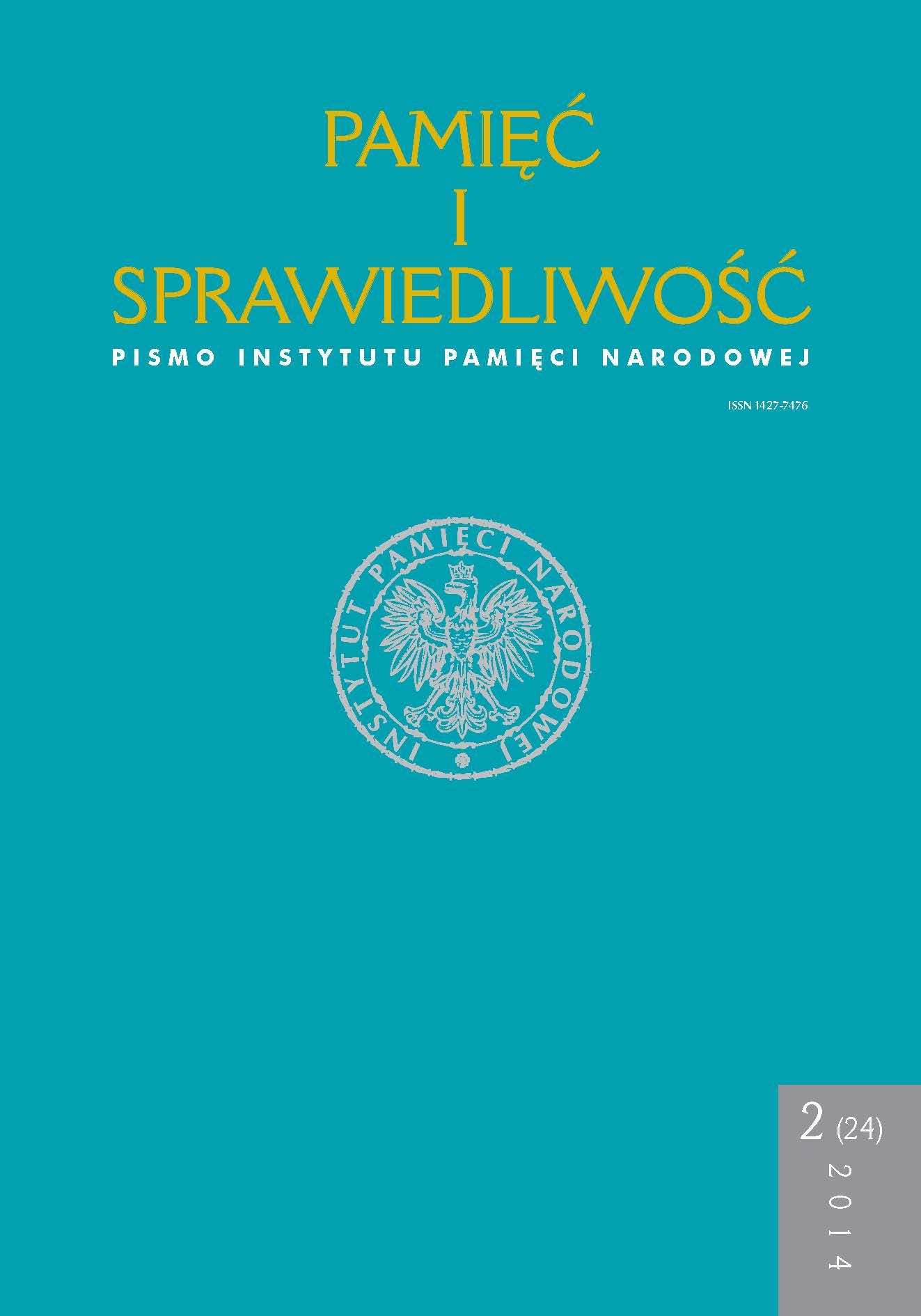Konstanty Gebert – redaktor i publicysta prasy podziemnej
Pamięć i Sprawiedliwość, V. 24 N. 2 (2014), pages: 191-226
Publication date: 2014-12-30
Abstract
This article discusses the activities of Konstanty Gebert – an editor and publicist of the
underground press in the years 1982–1989. In the 1970s, he cooperated with the
Workers’ Defence Committee and continued his activity during the ‘Solidarity’ period. Shortly
after the introduction of martial law, Gebert became a member of the editorial team of
‘KOS’ – one of the most important underground periodicals. He soon became one of the
key figures in that community. He performed editing and typesetting, but was really in his
element when writing articles for the press. He wrote articles for ‘KOS’ and other
underground periodicals. With time, his pseudonym ‘Dawid Warszawski’ became a well-known
brand in the underground press.
Gebert was initially in favour of creating an Underground State, similar to the one
existing during the Second World War. However, his views on the organization of the
underground movement gradually evolved. In 1983, he suggested establishing an
‘independent socjety.’ Even though he was connected with the moderate stream of the ‘Solidarity’
Movement, he was far from being conciliatory. His views changed partly as a result of the
policy of the authorities after 1986, when most prisoners were released. He came to the
conclusion that the situation was stalemate. He thought that a compromise was possible –
due to the economic crisis and changes in the USSR – but not at any price.
He was passionately interested in international politics. In underground publications,
such issues were only mentioned in connection with the ‘Eastern bloc’ and the USA. ‘Dawid
Warszawski,’ however, was also interested in the Middle East and China. He was
sometimes fairly critical about the USA and its non-democratic allies.
Observing the life of Konstanty Gebert, one may notice certain dilemmas. In his
opposition activities, he was always looking for a balance between the aim of making the
underground press as attractive as possible for the reader, and that of subordinating it to
the objectives of the social opposition movement. Gebert’s biography also shows how
important the experience of co-creating the underground press was in the development of
the journalistic elites of the Third Republic of Poland.
Puoi leggere altri articoli dello stesso autore/i
- Jan Olaszek, Tomasz Kozłowski, Internowani w stanie wojennym. Dane statystyczne , Pamięć i Sprawiedliwość: V. 16 N. 2 (2010)
- Jan Olaszek, „Ekstremiści, chuligani, politykierzy”. Obraz podziemnej „Solidarności” w propagandzie stanu wojennego , Pamięć i Sprawiedliwość: V. 16 N. 2 (2010)
- Shana Penn, Jan Olaszek, Wahadło przechylone w drugą stronę. Uwagi do książki Shany Penn, Sekret „Solidarności”. Kobiety, które pokonały komunizm w Polsce, Warszawa, WAB, 2014, ss. 448 , Pamięć i Sprawiedliwość: V. 25 N. 1 (2015)
- Jan Olaszek, Grzegorz Wołk, Drugi obieg wydawniczy w oczach Służby Bezpieczeństwa , Pamięć i Sprawiedliwość: V. 21 N. 1 (2013)
- Jan Olaszek, [Recenzje] Wokół pracy Pawła Sowińskiego Zakazana książka. Uczestnicy drugiego obiegu 1977–1989, Instytut Studiów Politycznych Polskiej Akademii Nauk, Warszawa 2011, 367 ss. , Pamięć i Sprawiedliwość: V. 19 N. 1 (2012)
 Język Polski
Język Polski
 English
English
 Deutsch
Deutsch
 Français (France)
Français (France)
 Italiano
Italiano
 Русский
Русский


 PDF (Język Polski)
PDF (Język Polski)
